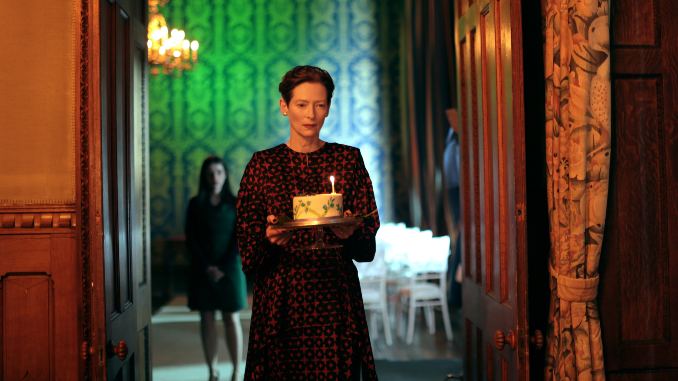The Eternal Daughter Is a Beautifully Atmospheric Riff on Classic Hollywood Horror

This review originally ran as part of Paste’s 2022 New York Film Festival coverage.
Joanna Hogg’s The Eternal Daughter feels like stepping into a Halloween mood board. Less compelling to me was the story about a mother and her documentary filmmaker daughter (both played with precision and humor by Tilda Swinton) revisiting a significant family home, now a stately bed and breakfast, to mine memories for the daughter’s upcoming film. I was, instead, more captivated by the technical work encompassing this story: The lightly gothic architecture of the hotel with its spires and looming gargoyles, the perpetual blanket of swirling fog and howling wind, the understated cemetery which shares the grounds, the delicate flute melody that evokes something not of this world, the occasional splash of light from an exit sign pooling an eerie neon green into the hotel hallway.
Nearly every establishing shot in The Eternal Daughter harkens to a landscape painting in an episode of classic Scooby-Doo, in a film that feels like it was made over 50 years ago. It wasn’t until the film’s conclusion that I realized this latter homage was entirely intentional, when a swell of violin and a stylized title card aroused the sensation of having watched the kind of ghost story that doesn’t get made anymore, in a film industry that no longer exists.
Julie (Swinton), her mother, Rosalind (also Swinton), and their dog, Louis (Louis) arrive at the former family manor, now a near-vacant hotel. They run into problems immediately: The hotel’s curmudgeonly young clerk (Carly-Sophia Davies) doesn’t have the room Julie booked available, and won’t give Julie an answer as to whether she and her mother will be able to stay in their begrudgingly gifted replacement room. On top of the room mix-up, the hotel has no WiFi (inconveniently, you find a signal only at the very top of the establishment), there is a strange clanging sound that plagues Julie’s sleep and she would really like an electric kettle to boil water for her tea. Every request to the young clerk seems to be too much, Davies consistently proffering terse apathy and a hilariously throbbing vein. But she still obliges Julie’s simple, if needy, requests.
-

-

-

-

-

-

-

-

-

-

-

-

-

-

-

-

-

-

-

-

-

-

-

-

-

-

-

-

-

-

-

-

-

-

-

-

-

-

-

-








































